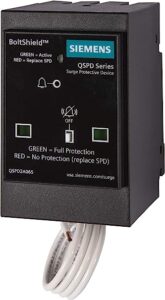The average cost of installing solar for a grid-tied solar system in BC is between $2.50-$3.50/watt. The smallest common size solar system most homeowners install is 5,000 watts. The average size of solar systems for most provinces is 7,000 watts.
Ground-mounted vs. rooftop solar panels
Other factors that should be considered when selecting your solar panel installations are whether the solar panels are ground-mounted or on the roof. Installation of ground solar panel systems is typically about 15% more.
But these solar installations are capable of creating between 10% and 25 % more energy than roofs – which means that it is not necessary to install as much system to generate electricity for your energy usage.
The average home has solar panels installed on the roof.
Battery backup vs. grid tied
A battery backup solar installation can still benefit from a net metering program from bc hydro and Fortis BC to reduce their electricity prices, but customers who get a battery backup solar panel installation are usually planning on saving that excess energy for later use (which still offsets their hydro power bill).
That being said, a battery backup solar power system costs approximately $5,000 more. Adding the battery backup to your solar power system includes the solar batteries and all necessary power management systems to store the clean energy from your solar panels.
Solar equipment installation costs
Most people think that solar panels are the most costly part of a solar installation, but that is not true. Solar panel pricing has fallen almost 80% from 2010 making the cost of the solar PV panels less of a cost of the entire solar panel system.
When getting a residential solar installation most of the upfront cost comes from establishing the system in your home. This includes tying the solar system to your electrical panel, installing all the solar racking on the roof, electrical wiring, solar inverters, installation permits, and working with the site conditions.
What this means is the replacement cost for the solar panels is less then most expect as all that’s involved is replacing the solar panels.
Check out our article here to see how long it would take your solar panel system to pay itself off.
Quality of the solar system
A solar panel installation can range from super basic with cost effective solar panels to high quality with microinverters, high output solar panels and cool technology like connected apps to show your energy output.
Common solar system luxury items:
- Microinverters: these convert solar energy to electricity that your home can use. Microinverters are installed for each solar panel rather then an inverter which every solar panel connects to. The benefit of microinverters is individual solar panel management and if one fails the entire solar system continues to generate electricity.
- Quality Solar Panels: Higher quality solar panels produce more energy from sunlight then a lower cost solar panel. Higher quality solar panels also last longer increasing the total solar potential of your system.
- Black on Black on Black: Not much of a cost increase as quality solar panels come with this option but worth noting that a quality solar panel brand offers their panels in all back for a cleaner looking installation on your roof.
- Energy Management Systems: This option allows the solar systems to manage the energy consumption of your home and you get to decide where your solar power is going.
The average cost of adding these items to your solar system is about 20% to the base price.
Solar incentives
British Columbia currently has an amazing $5,000 grant available for residential solar panels in an effort to help homeowners reduce their carbon footprint. You can check out the grant here, there is a total of 700,000 grants available on installing solar panels (and other energy efficiency upgrades) so this will not last forever.
In addition to solar incentives BC Hydro has a great Net Metering program that offsets your hydro bill for how much energy your solar panels generate per kilowatt hour. If your solar panels can generate a excess energy to your consumption you actually get credits.
Payback period of solar panels and the installation
Solar energy is increasing, and installing home solar panels is a simple and effective way for you to reduce your environment footprint and conserve energy over time. Depending on the country and region of installation, the cost of solar panels may vary. The costs of solar paneling will continue to decline with technological advancements and a more efficient production sector.
The payback period for your solar power system is generally 15-18 years. But honestly, that doesn’t really matter because the entire time your solar panels are on your roof they will be generating clean energy and offsetting the cost of your utility power.
Every watt of energy your solar PV will offset your hydro bill and your annual energy will be reduced a significant amount.
A solar panel system will also protect you from rising utility rates.
See how Net Metering works here.
Tips for Solar Shoppers
This guide will help you decide if you want to use solar electricity. The first step should be talking to friends and relatives and checking our YouTube reviews. A review can help steer you and can be useful when dealing with a customer experience. The best quality doesn’t always cost less than you pay. The best place to start when considering your solar installation is to get a quote from a solar installation company.
You can get free quotes from most of the solar installers including us here where you can book an online virtual quote with a solar consultant to discuss the cost of solar panels from the comfort of your home.


